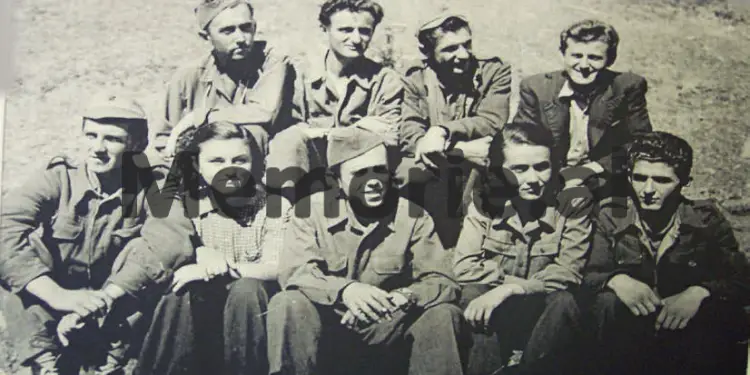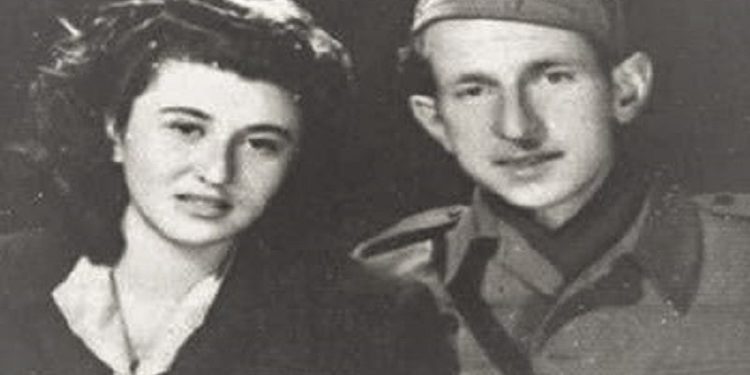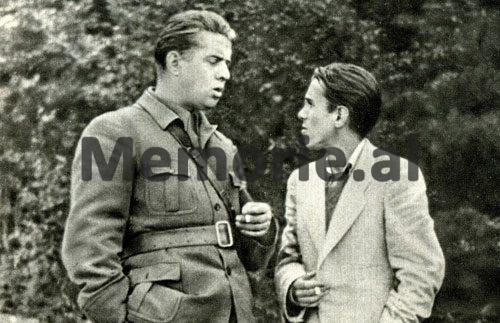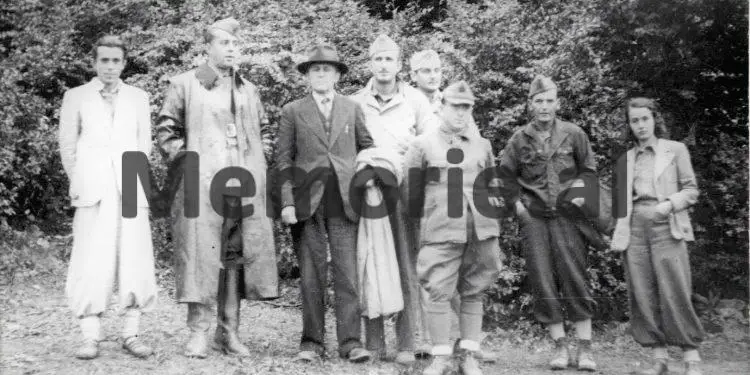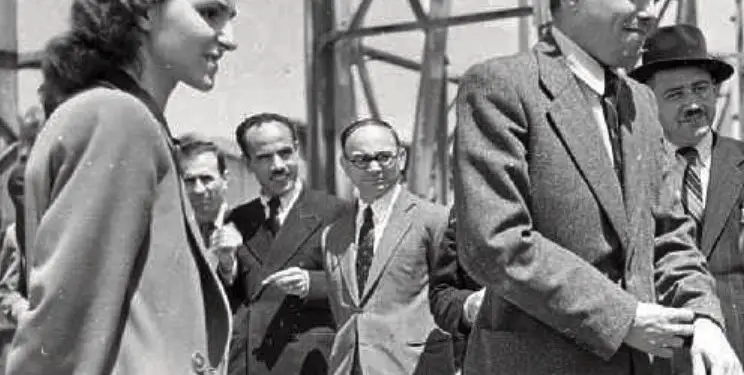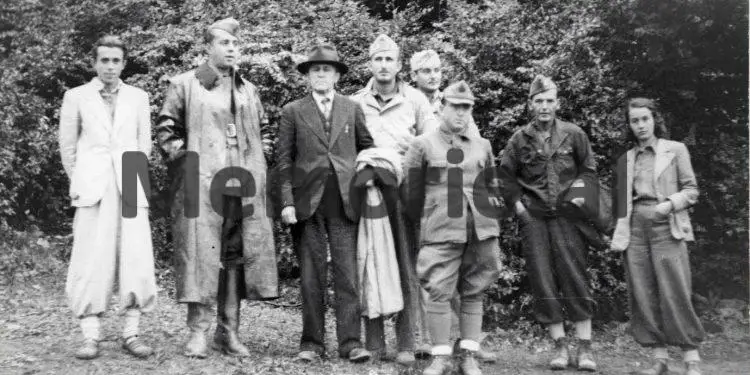By Prof. Muslim Islam
The third part
Memorie.al / I feel it is my duty as a citizen to give the reader a presentation or an explanation about the reasons that led me to add this afterword to the monograph, dedicated to the life and work of Ali Kelmendi. As I informed you in the introduction, I wrote this monograph during the 80s of the 20th century. In March of 1987, I finished the book and submitted it to the editors of the “8 November” Publishing Company. After several months, I learned that the reviews had been formulated with appreciation by three renowned specialists, and yet, I did not understand why the material was not given for editing and why the process of preparation for publication had not yet begun. I had submitted, along with the text of the monograph, photos, documents, as well as the cover. In those days, someone very kindly whispered to me that the material had been withdrawn to the Central Committee of the Labor Party of Albania. But maybe this benefactor didn’t know or didn’t have the courage, I don’t know, to tell me in which sector it was left, or which holder had it in hand. God, even today, in the years of democracy, wants to remain anonymous…!
Continues from last issue
Nako Spiru showed the place to Enver
In the minutes of the II Plenum of Berat, in his discussion, Nako Spiru analyzes the problems openly, without any hesitation. “It’s not that we didn’t know how to choose the Party’s Central Committee. This was second hand. The thing is that everything remained in the hands of Miladin and the people he wanted to keep close to him”. Below, he asserts: “Our party failed to have a clear political line.”
The synthesis of the Peza Conference, Nako Spiru has clearly defined in this Plenum: “The issue of nationalism is not seen as an urgent matter, because there was no perspective for it. For our weaknesses, Peza remained a formal thing”. You are surprised, sometimes, and below it continue: “The National-Liberation Council of the city, responds with a tract: ‘Nothing will stop the people on their way, towards the Liberation War”!
In March 1944, in a pamphlet, among others, he informs the members of the Central Committee of the KPSH: “Terror continues in Tirana….! Here the enemy is trying to separate our people. The war in the city, in order not to let the enemy separate the people and the youth, is not far behind in importance than the war with the partisans. Therefore, our fist should be felt here as well. The days of the enemy are short. We must not capitulate between the cities….”! Nako Spiru has appreciated the unity of all political forces in Albania. He was for pluralism in the Anti-Fascist National-Liberation Front.
In March 1944, he, together with Dr. Ymer Dishnica, proposed to the Central Committee of the Party and Enver Hoxha, that with the democratic elements in the National-Liberation Front and with the wing of the National Front, which wanted to fight the invader, a republican party should be formed. Enver Hoxha returned a letter with very harsh criticism: “All power should be in the hands of the Communist Party and the National Liberation Front, only individuals should be accepted.”
Nako’s discussions in the Plenum of Berat
In his discussion, Nako Spiru, at the II Plenum in Berat, about the struggle and resistance in the city, underlined: “A situation was created during the Winter Operation, so that the people were shaken enough. Meanwhile, from the letters I received from ‘Ali’ (pseudonym of Miladin Popovic) Liria and Koçi, when I was in Tirana, it was as if nothing was possible, as if the cities were in our hands. Meanwhile, the enemy was preparing to give us punches and gave us hard punches.
Except for Tirana and Korça, the Party organizations in the cities were liquidated…! Our affairs were taking on an increasingly sectarian character. In Helma, Panarit, Përmet, even later, sectarianism developed. If Mukja was the result of our wrong line with ‘Balli’, these attitudes with Muharrem Bajraktar and the murders in Tirana are the result of our sectarian attitudes. For all these big mistakes, the comrades still haven’t emptied themselves and pulled out the roots”!
In Vithkuq of Korça, there was a part of the leadership and here came the news of the interruption of the Mukje Conference, as well as the position of the delegation of the Albanian Communist Party. In Vithkuq, the issue of Mukje was discussed for the first time. Enver Hoxha, Miladin Popovici, etc., were the ones who shared with Dr. Ymer Dishnica and Mustafa Gjinishi should be treated harshly, expelled, branded as traitors and executed. This opinion was opposed by Nako Spiru, who protected them and saved them from death. Gogo Nushi says that he received several letters from the Provisional Central Committee, about the murder of Sotir Kondi, Anastas Plasari and Zef Mala, etc. Yes, he says that he got the letters from Enveri.
As it results from many documents, but also from the analysis made by Nako Spiru in the 2nd Plenum of Berat, it is clear that this civil courage of his, this idealistic passion for the logical position he took in the first analysis that was made to Mukje, was caused the delegates of the Communist Party of Yugoslavia to create reservations, to create mistrust, to doubt the decisions and the formation of Nako Spiru. The latter did not even consider him, when in Berat he said about Enver Hoxha, who is harmful to the leadership of the country.
In Plenum II, with the intervention of his own discussions, Nako Spiru openly presented what Enver Hoxha was, there, face to face and eye to eye: “Comrade Tuk (Tuk Jakova) touched on the issue of Enver’s popularization. We need to popularize the movement first. We had to have a straight line, so that the banners reflected the Front. Popularization is done for people to relate to the war.
When you are not trying to expand the Front, you are trying to put a name in people’s heads, to popularize a friend; this is artificial. It didn’t even have a name until yesterday. Today, even in a list of dishes, you will find Enver’s name”.
Criticism of Sejfulla Malëshova, for Enver
It is known that in the 2nd Plenum of Berat, Sejfulla Malëshova characterized Enver Hoxha as “the epitome of all the mistakes during the war, the guy who created the clique”. The leaders of the wing with culture, with knowledge, thought to prepare a new generation with contemporary knowledge and wanted to displace the meek types, without proper preparation, but neither to disappear physically nor to deny them the struggle and sacrifice theirs. On the contrary, Enver Hoxha and Koçi Xoxe, became copycats of Stalin’s methods for purges by any means in Albania. Enver Hoxha was not a representative of Albania’s interests, but of foreign interests, such as the Yugoslav Communist Party. He did not take any special condition of Albania into account. Enver Hoxha, by order of Tito, disappeared all Albanian intellectuals, who were protected by Sejfulla Malëshova, according to whom, in a culturally backward country, the opinion of intellectuals had to be protected and respected, so that they would not be killed.
Enver Hoxha’s self-criticism in the Plenum of Berat
It is already known that Enver Hoxha put Miladin Popovici. Enver Hoxha defended the Yugoslav policy in Albania. In his self-critical and explanatory speech, Enver Hoxha in the II Plenum of Berat, among his many mistakes and inabilities, admitted and affirmed: “When I participated in the Movement with the Communist Group of Korça, the work was carried out in a conspiratorial manner . I approached these friends and found myself near Koço Tashko. Others remembered that I was the chairman of the work, one of the leaders, but I was only a sympathizer; I was not a member.
When the Party was formed and I found myself in the Central Committee, I entered here with the proposal of Koço….! As for responsibility in the Provisional Central Committee, this was flexible; no one had a specific responsibility. Only the name was the Central Committee. I am now finding out from “Baca” (Ramadan Çitaku’s nickname) that Tuku was a political secretary there.
It must be affirmed that the existence of Nako Spiru in the ranks of the Political Bureau of the Central Committee of the Party, president of the Youth, chairman of the State Plan Commission, responsible for Agitation-Propaganda in the K.Q. of the Party, did not allow the leadership of the PKS to return to the tyranny of Enver Hoxha and Koçi Xoxes, their clan. Sectarianism and terror did not allow the country to develop, because it kept it in a Byzantine-Ottoman state.
Leaders of War like; Sejfulla Malëshova, Nako Spiru, Ymer Dishnica, Omer Nishani, Koço Tashko, Konstandin Boshnjaku, Shefqet Beja, and dozens of intellectuals and patriots, have expressed concern about the fate of post-liberation Albania.
The secret diary of Nako Spirut in 1944
Nako Spiru knew the situation in Albania well. It had to move towards democratic reforms. But this could not be achieved without connection with the West: this was necessary. The West was democratic, not Nazi. Nazism lost the battle. Nako wanted the good of the Kosovar Albanians who were being persecuted by the Yugoslav Communist Party. Nako Spiru, did not want the degeneration of Albania, but its regeneration.
He was not against agrarian reform; it was not feudal, but it was against cooperation. The Soviet path of collective farms was harmful to Albania. Nako, with his horizons and knowledge, knew like Sejfulla Malëshova, Ymer Dishnica and others, that Nazism and fascism would be defeated. Loss of tail; Rome-Berlin-Tokyo, was achieved through the coalition led by the USA, the Soviet Union and England.
Nako Spiru was a revolutionary-humanist thinker, not of purges and terror, as was the case in the life and work of Enver Hoxha, so much so that it was published with the words: “Enver Hoxha sharpened his sword/ once again for the situation”. Nako was for power, but this was to be realized after liberation, through a new path. The misfortune was that he was surrounded by dark people, without theoretical-political preparation. They only knew Stalin’s quotes. In that situation of terror, Nako Spiru and the intellectual idealist wing of the leadership of the war had as the core of the philosophy that it would be led by a party and at the head of the direction of power; skilled and knowledgeable people would emerge.
The dogmatics was against this cultured, emancipated and liberal wing with the slogan: “To be consistent with Marxism-Leninism”, as General Koçi Xoxe underlined: “the proletarian core with the heart of Bolshevism”. This was the sectarian thought filled with slogans and dry quotations, which today is clear to everyone how much they damaged it and this fascist spirit, method and practice had to be thrown into the trash, in order not to continue and practice the path of these indoctrinated or indoctrinated types, to see further than their noses.
Hoxha’s attack on Nako Spiru
Enver Hoxha, in all the decisive moments, in the turning points for the most cardinal things, has manifested a conjunctural attitude, with insidious methods, behind the scenes, with the most monstrous slander clans, hitting both right and left. He was a master of intrigue. He sold any of his friends; not just myself. His merit in quotes was that he knew how to adopt the values of others, as he did with; Koço Tashko, Qemal Stafa, Omer Nishan, Kostandin Boshnjaku, Sejfulla Maleshova, Nako Spiru, Dr. Ymer Dishnica e, how many nationalist patriots, or military men with the Academy, who stood out as talented leaders in the Anti-Fascist War and all of them, it can be said without exception, were removed or executed.
He attacked all those he considered opponents with the same style. He accused them as agents of imperialism, as Yugoslav agents, as agents of the West, and even as agents and poly-agents of some discoveries and of some countries. Nako attacked Spiru from behind. Isolated him and arranged his physical disappearance. The number of people who have been beheaded, imprisoned, exiled or imprisoned, all the readers of this article knows and, within a few seconds, they will cross their minds.
The large number of those who disappeared lowered and sealed Enver Hoxha in a rank with the satraps and criminals of humanity, such as Hitler, Stalin, etc. At every conference, plenum, congress, Enver Hoxha’s “knife” waited alone. An entire people terrorized, antagonized, divided, and above all, killed the virtues, which the Albanian and every person were proud of.
Diary
In those terror situations, Nako Spiru kept a diary in Italian. There are many possibilities that Vladimir Dedjer published parts of this diary. In November 1944, in his diary, Nako characterized Enver Hoxha’s portrait as follows: “I follow Tashko with my eyes closed. With the arrival of Miladin and Dushan, with the formation of the Party, he became a member of the Temporary Central Committee of the Party and followed Miladin with closed eyes, who little by little concentrated the responsibilities in his hands.
At the Party Conference, he was elected secretary general of the Central Committee of the Party. He was usually distinguished as a man who excelled in the fight against factionalists. This is a free part. He snored more in this campaign than he worked. He has done nothing of himself, an enforcer without perspective of Miladin…; intelligence (smartness) – mediocre. At school, abroad and as a professor, also mediocre. During this time (before the creation of the Party), life was very regular. In Paris, sectarian; now they want to flatter him. He created a clique around himself. He wants to be the first in everything and kick everyone.
He will see others as very small. He tries his best to create an inferiority complex….! No leadership qualities; inhibits any initiative. He comes from a family of smallholders; recently in not very good economic conditions. He is not known among the people and, where he is known, he does not enjoy a reputation. The party is popularizing it with all its might. This is the only way it has started to become known. But the people are not convinced of his abilities”.
Clash with the Yugoslavs
A bright page for the life and work of Nako Spiru, is his fight to protect the interests and independence of Albania until he gave his life. He faced the pressures and threats without wavering, with heroism and rare civil courage. Enver Hoxha’s policy led to Stalinist tyranny accompanied by terrorism against intellectuals. This policy of Enver was followed to the end by the students of his successor.
Albania was reduced to this degree of pain and shame, unfortunately it continues even today. In a titanic way, tooth for tooth, Nako Spiru fought the war with the Shoven circles of Belgrade. You were labeled anti-Yugoslav, anti-Slav. Nako was put under full surveillance by the heads of the State Security. Commander Enver Hoxha and General Koçi Xoxe were informed about his every move, thought and attitude. The intervention of the Yugoslav KP in Albania, after the Fifth Plenum of February 1945, which eliminated Sejfulla Malëshova, began to become more brutal.
The KPSH turned into a tail of the Yugoslav KP, with their aim to turn Albania into a seventh republic of the Yugoslav Federation. In July and November of 1946, treaties of friendship, mutual aid cooperation, and economic conventions were signed, from the coordination of plans, the unification of prices, the pre-fixation of currency, joint societies to the opening of customs. Nako Spiru refused to sign the agreement with Belgrade. He was sent at the head of a delegation from the Central Committee of the Party and Enver Hoxha’s radiograms forced him to sign them. They ordered him to set up the coordination commission.
Traps from all directions. Mrs. Liri Belishova recalls: “We waited for him when the delegation returned from Belgrade. There were 5-6 of us. When Nako got off the plane, he shook our hands and added: ‘He found me like Eqerem bey Libohova, who sold Albania; I also signed.” He added below: “Someone had informed Enver Hoxha about these words of despair of Nako, who later used them to attack him at the meeting of the Political Bureau”.
In November 1947, Josip Broz Tito accused Nako Spiru, as the cause of the deterioration of relations, as an agent of the bourgeoisie and imperialism. Enver Hoxha did not wait for explanations. The Embassy of the Soviet Union turned a blind eye and a deaf ear. In the Political Bureau, they were not called as usual and were absent; Bedri Spahiu, Mehmet Shehu, Liri Belishova, Fadil Paçrami, etc., and called Nako Spiru a traitor.
8th Plenum
The VIII Plenum of the Central Committee of the Party, which has been described as a black spot in the history of the Party, advanced the Belgrade scenario. 15 days after the death of Nako Spiru, on December 15, 1947, at the Politburo meeting, where Tito’s envoy, Sava Zlatič, the main protagonist, took part, said, as documented by the minutes that are still kept today in the Archive Central of the State, where it is said: “Now that we liquidated this obstacle, i.e. Nako Spirun, we must win back the lost time and make the ‘de facto’ union of Albania with Yugoslavia as soon as possible, in all areas (party, economy, army, etc.), because Albania cannot exist as an independent state and even less, to build socialism, without uniting with Yugoslavia. We will make the announcement in favorable international circumstances and conjunctures”.
This national betrayal began, but was not realized, because the Stalin-Tito conflict broke out and Enver Hoxha, for his own interests, took the side of the strongest. The existence and independence of Albania was held in the balance. In Çarshovo in Kolonje and in Lin in Pogradec, barracks were being erected for the arrival of two Yugoslav military divisions and in Tirana, at the airfield, special Yugoslav troops were deployed. Tito and his collaborators, Koçi Xoxe and Enver Hoxha, as well as the Soviet embassy and Stalin himself, who did not intervene to stop this crime, are responsible for the tragic elimination of Nako Spiru.
Nako Spiru was called an enemy. A part of those who remained at the head of the Albanian Communist Party became traitors to the nation itself, because they sold Albania. They boasted about the words Seventh Republic. In the 1st Congress, Enver Hoxha pretended to rehabilitate him with words of the upper echelon: “He stood up (he was talking about Nako Spirun) to the pressures of the Yugoslav KP” and below he added, because he could not detach himself from sick megalomania, not even from behind the scenes: “That he followed my orders”. Memorie.al




